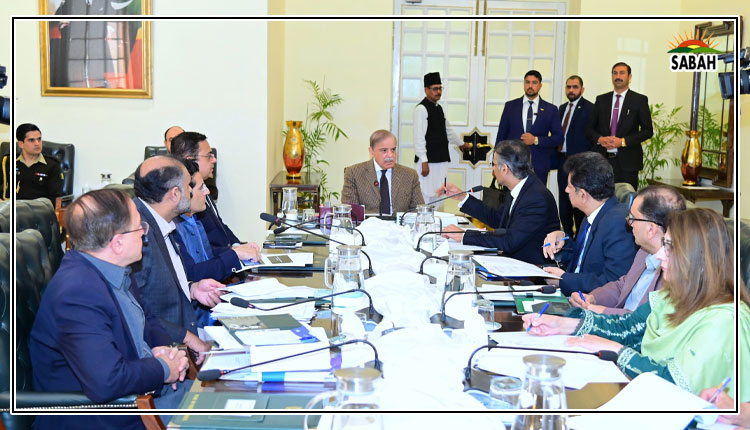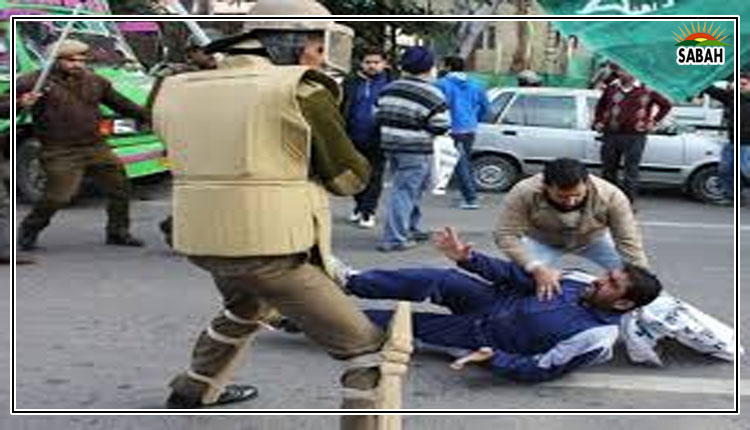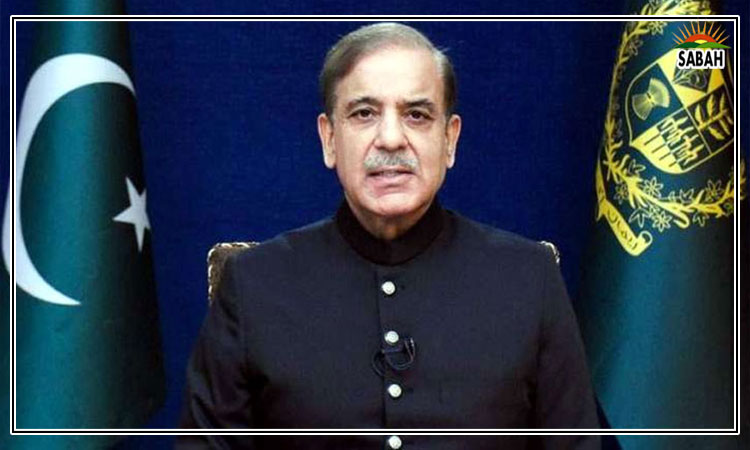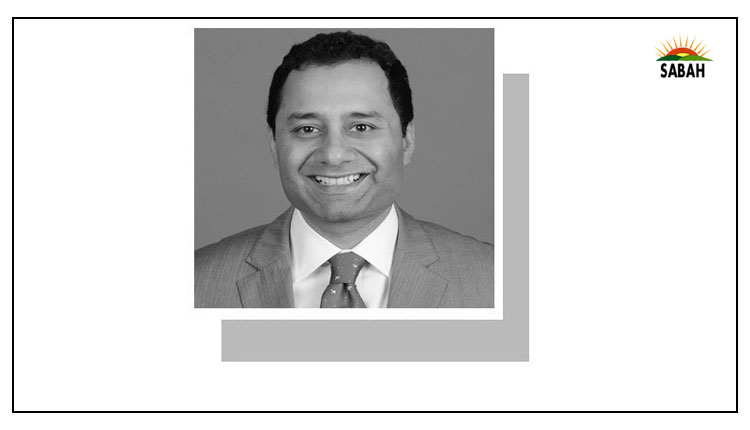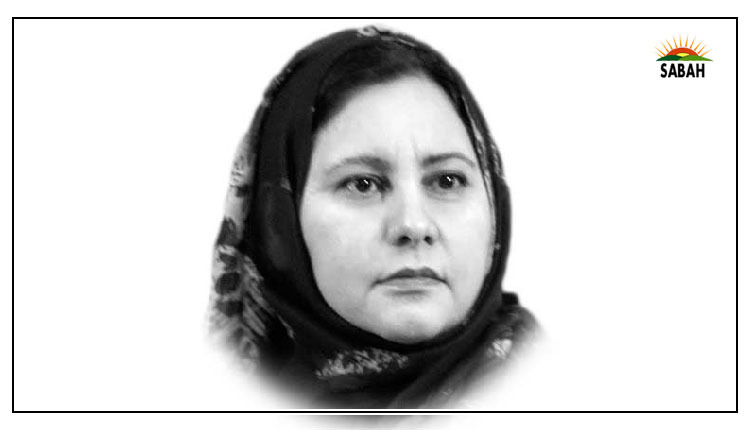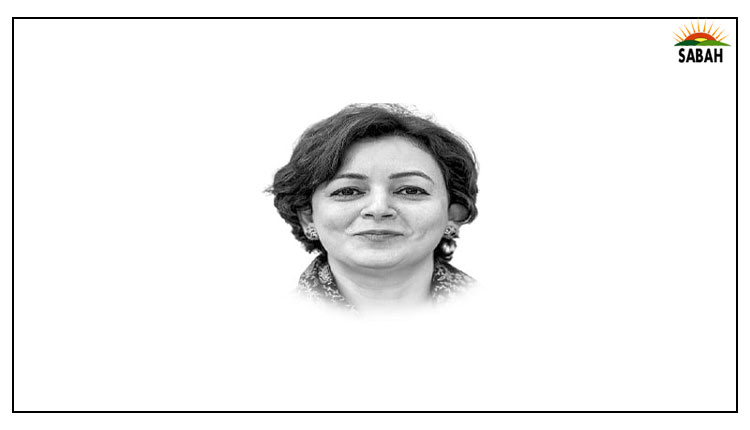Rebuilding the state…Kamila Hyat
The inauguration of Justice Qazi Faez Isa as the new chief justice of Pakistan has brought hope to some and inevitably dismay to others. It is true that Chief Justice Isa is known for his outstanding reputation within judicial circles and his strong views on what kinds of reforms are needed within the judiciary. Some hope he can simply turn the country around.
But the fact is that no one man can achieve this. We are now in a situation where a series of deep structural reforms have to take place simultaneously to bring about any kind of long-term change. This must begin with crucial areas such as education and healthcare.
We should also note that when it comes to improving the social wellbeing of people, cities like Karachi, Lahore, Rawalpindi, Islamabad, Peshawar and, to a far less extent, Quetta are often mentioned in such discussion. But we should also be thinking about people who live in small cities, rural areas and the peripheries. Do we have any planning in place for young people living in Lalamusa or Sukkur or Pishin and other places dotted across the country?
Do the people even know where these smaller towns and cities are located on the map of Pakistan? The answer would be a resounding no. But we must think of these places because their future in many ways determines the future of Pakistan. For that matter, many areas within the big cities are neglected in many ways. The latest rain spell in Lahore inundated low-lying areas in the city, and it is feared that the water may not drain for many days to come.
As former finance minister Miftah Ismail has noted on more than one occasion, Pakistan has been ruled for many years by graduates of elite institutions such as Aitchison College, Karachi Grammar School, and a few other similar institutions which have produced most of the countrys leaders. We need to go beyond this.
We need to build leadership ability in other cities and think of these places as homes for the majority of Pakistanis. While we discuss solid waste management in Karachi, we ignore the need for similar measures in the smaller towns of Punjab or Sindh. Some towns have of course managed to do a far better job than the larger cities on their own. These include Vehari and Bahawalpur as well as locations in Gilgit-Baltistan and Azad Kashmir. But, a systematic approach to providing jobs and a road infrastructure for people who live there needs to be created as quickly as possible.
The network of farms to market roads is also important for people who are engaged in agriculture. We are already too late for such development in rural areas and as a result, people in smaller cities feel they either have to migrate to Karachi/Lahore or other big cities to find employment or have to make their way overseas, if this is possible for them. They simply see a bleak future for themselves in their cities.
For many, this can also mean turning to extremist groups which operate across provinces and prey on the youth. Some alternatives must be offered to these young people. This can only happen if we set up institutions of quality learning in these smaller urban centres with an outreach into villages surrounding them, and launching other ventures which can offer work to people who live there.
Outside the failing agriculture setup, there is often simply nothing for these youngsters to do. Some move to urban areas, a practice that usually adds the overpopulation burden on cities like Karachi, Lahore, Faisalabad, etc. Others stay where they were born, often doing very little, or turning to, in rare cases, some kind of illicit business to bring in a living for their families.
It is essential that we think beyond a single institution or large cities, but of the country as a whole. This is possible only if we keep in mind the need to build a nation which is united in more ways than one. All the provinces should have an equal ability to provide education. There should also be greater equalities amongst people no matter where they live.
The current situation is that even at institutions such as Lums, people from smaller cities have complained that they cannot keep up in online classes notably during the Covid epidemic but even on other occasions because there is no suitable internet in their areas. It is encouraging to note that some big universities have set up their campuses in cities such as Gujrat and Gujranwala. But more such initiatives are required to empower people living in such areas.
Building Pakistan will not be an easy task. It is ridiculous to expect that Chief Justice Qazi Faez Isa who is likely to focus on the judiciary alone, as he should can achieve this. The best hope is for people everywhere to recognize how much they have lost.
We must listen to the views of renowned economists who were rejected because of their religious beliefs from Pakistans advisory board some years ago, and try and follow the advice they have for economic change. Their comments about accountants and how much they can manage are significant. So are their comments about people outside the country unlikely to buy land even in DHA or other posh housing societies simply because they are not likely to live there. Instead, only people inside the country are likely to invest in these properties.
Moving forward is important. There is an argument that technology and AI is our best hope of achieving this. But technology depends on who handles it and who operates it. Without people who bring with them true worth and true desire to alter the country so that it can today achieve the same status as countries in the region such as Bangladesh and India which are well ahead of Pakistan, we will be lost.
It is also notable that Pakistan now stands behind nations in sub-Saharan Africa, one of the poorest regions in the world, in different spheres. This can simply not be our future.
We see maternal mortality even in our larger cities and at bigger hospitals. We see death in the under-five group in these cities too, as well as other areas. A lot has to change and those who come into power next must consider these massive structural reforms in the economy, in politics, in the judicial system and in other places on priority.
Courtesy The News



